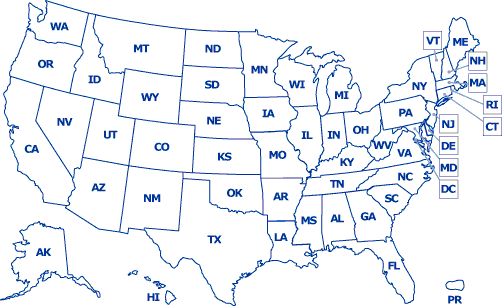We spend 90 percent of our time indoors
#theairyoubreathe

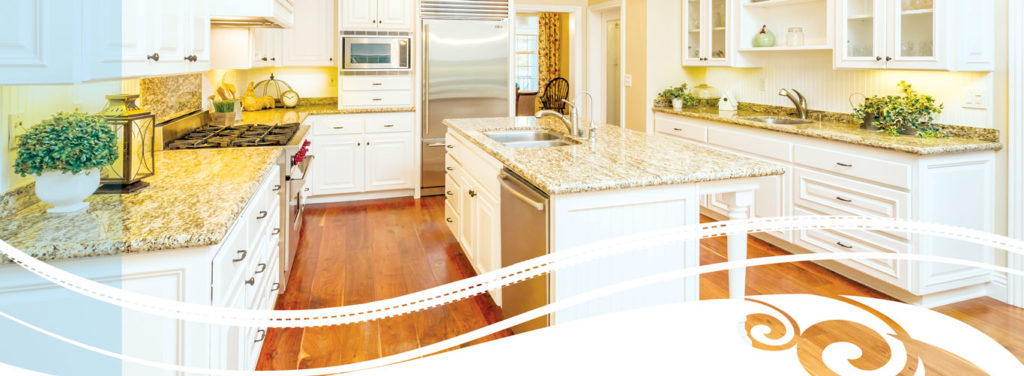





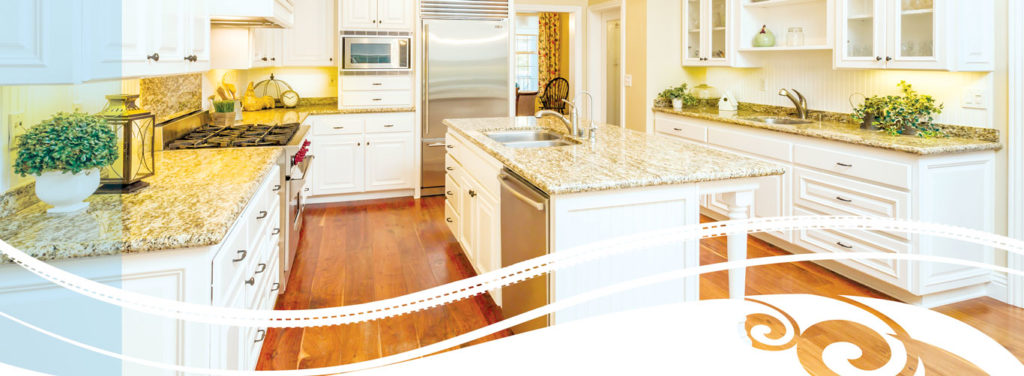
Take 'the air you breathe' quiz
what's in 'the air you breathe'... 'particles'
Avoid activities that create more fine particles indoors, including:
- Smoking cigarettes.
- Using gas, propane or wood-burning stoves and furnaces.
- Spraying aerosol products.
- Frying or broiling food.
- Burning candles or incense.
- Vacuuming, unless you use a vacuum with a HEPA filter.
Illnesses related to tight, energy-efficient new buildings received increasing attention beginning in the 1970s, with the emergence of “sick building syndrome,” a cluster of symptoms that include headaches, respiratory symptoms and difficulty concentrating. Experts identified indoor air pollutants as the likely source, but they didn’t suspect that carbon dioxide was part of the problem.
Outdoor air, including fine particles from wildfire smoke, can enter your home in a few ways:
- through open windows and doors, which is known as natural ventilation.
- through mechanical ventilation devices such as bathroom or kitchen fans that vent to the outdoors, or heating, ventilation and air conditioning (HVAC) systems with a fresh air intake.
- through small openings, joints, cracks, and around closed windows and doors through a process called infiltration.
Wildfire smoke could impact your indoor air quality (IAQ) differently depending on the proximity of the fire and the density of the smoke.
Consider purchasing a portable air cleaner or high-efficiency HVAC Filter
You may decide to purchase a portable air cleaner or high efficiency HVAC system filter as part of your preparation in order to help improve your indoor air quality during a wildfire smoke event. If you decide to purchase a portable air cleaner, choose one that is sized for the room in which you will use it. Make sure the portable air cleaner does not make ozone. If you decide to purchase a high-efficiency HVAC filter, choose one with a Minimum Efficiency Reporting Value (MERV) 13 rating, or as high a rating as your system fan and filter slot can accommodate. You may need to consult a professional HVAC technician to determine the highest efficiency filter that will work best for your system.
You can find additional information about portable air cleaners and HVAC filters in the Indoor Air Filtration fact sheet and EPA’s Guide to Air Cleaners in the Home.
Asbestos: Anyone working on demolition, removal, and cleanup of building debris needs be aware of any asbestos and to handle asbestos materials properly. People exposed to asbestos dust can develop serious lung health problems including asbestosis, lung cancer and mesothelioma. Although the use of asbestos has dramatically decreased in recent years, it is still found in many residential and commercial buildings and can pose a serious health risk.
Mold
- Mold cleanup: Mold can cause serious health problems. The key to mold control is moisture control. After the flood, remove standing water and dry indoor areas. Remove and discard anything that has been wet for more than 24-48 hours.
- Mold cleanup in schools and commercial buildings. Information for building managers, custodians, and others who are responsible for commercial building and school maintenance.
- Basic mold hazards. Cleaning up mold. What to wear
- More about mold from Centers for Disease Control
Flood water can make the air in your home unhealthy. This is because when things remain wet for more than two days, they usually get moldy. Inhaling mold can cause adverse health effects, including allergic reactions. Mold also can damage materials in your home. In addition, flood water may contain microorganisms, such as bacteria, or chemicals which may affect your health.
who care's about clean air?
 We notice that health conscious families tend to be the most educated, concerned and proactive about #theairwebreathe as a part of a bigger, more comprehensive view of their families health and safety.
We notice that health conscious families tend to be the most educated, concerned and proactive about #theairwebreathe as a part of a bigger, more comprehensive view of their families health and safety.
They care about the impacts of low oxygen and high levels of unhealthy particulates floating in #theairwebreathe. They know that it negatively impacts their health, their children’s development and can take years away from life.
They are part of #theairwebreathe movement. Are you?

breathe clean air
 If you care about what you put in your body… learning about what you breathe is going to be important to you. Our goal is to help keep you and your family safe and healthy.
If you care about what you put in your body… learning about what you breathe is going to be important to you. Our goal is to help keep you and your family safe and healthy.
Just imagine spending years of your life breathing harmful air without knowing.
Did you know we can install an Air Assist Testing device and see exactly what you are breathing in every day? #theairyoubreathe #shoplocal #smallbusiness


“the sick building syndrome”
Illnesses related to tight, energy-efficient new buildings received increasing attention beginning in the 1970s, with the emergence of “sick building syndrome,” a cluster of symptoms that include headaches, respiratory symptoms and difficulty concentrating. Experts identified indoor air pollutants as the likely source, but they didn’t suspect that carbon dioxide was part of the problem.
The Harvard study, which also involved researchers from SUNY Upstate Medical Center and Syracuse University, used similar testing methods as the Berkeley study, but it monitored participants over a longer period. It confirmed the 2012 results.
Some of these links may be to general air quality programs. #theairyoubreathe
Your Local clean air and HVAC Online Store
While every situation is a little different, our goal is to give our customers the product options they are looking for and complete transparency. Thank you so much for supporting our local small business. We know you have options and we greatly appreciate you choosing our team to take care of your family.
We care about #theairyoubreathe #shoplocal #smallbusiness
join the movement ….
- Humidifiers
- Dehumidifiers
- Air Filters (Autoship Available)
- Hepa Filters
- Ventilation
- UV Lights (Autoship Available)
- Air Purifiers
- Whole House Air Purification
- Fresh Air Dampers
- Spot Ventilation
- Air Scrubbers
- Air Quality Testing
- HVAC Maintenance
- NRV / ERV
- Air Quality Testing / Monitoring
high efficiency homes don't help improve #theairyoubreathe
A living room is usually a well-used area of a home and may harbor indoor pollutants. It is important to ventilate properly, keep secondhand smoke outside of the house, and vacuum and dust regularly.

Pet Dander and Hair
Pets can trigger allergy and asthma attacks due to dander and hair. Keep them out of the sleeping areas, and away from upholstered furniture, carpets, and stuffed toys. Vacuum and clean carpets, rugs and furniture often.
Secondhand Smoke
Secondhand smoke from cigarettes, cigars and other tobacco products can trigger asthma and other respiratory illnesses especially in children. To help protect children from secondhand smoke, do not smoke or allow others to smoke inside your home or car.
Carbon Monoxide
Fireplaces and leaking chimneys are sources of carbon monoxide. Ventilate rooms that have fireplaces, make certain the flue damper is operational and fully open when in use, and ensure the chimney is properly sealed.
A bathroom is often the dampest area of a home. It is important to ventilate a bathroom during use and dry damp surfaces.

Mold
Bathrooms are a common source of mold. Humidity from showers can cause moisture problems, which will lead to mold growth. Mold can cause allergic reactions, asthma and other respiratory ailments. Installing and using a ventilation fan will help to control moisture and inhibit mold growth.
A kitchen has appliances that may leak gases, and often contain chemicals for cleaning or removing pests. It is important to properly maintain and ventilate appliances, and safely store chemicals.

Pesticides
Pesticides used to rid homes of rodents, termites, insects, and other pests, can irritate the eyes, nose, and throat; damage the central nervous system and kidneys; and increase the risk of cancer. Don’t leave food out, and if you must use pesticides, ventilate during and after use and follow directions to limit exposure. Use non-chemical methods of pest control when possible.
Volatile Organic Compounds (VOCs)
Common household cleaners, often placed under the kitchen sink, release Volatile Organic Compounds (VOCs), when used and stored. Store household products that contain chemicals according to manufacturers’ instructions and keep all products away from children. Consider purchasing cleaners without VOCs.
Carbon Monoxide
To help prevent carbon monoxide exposure, make sure appliances such as gas stoves vent to the outside whenever possible and that all appliances are properly installed, used and maintained.
A bedroom often contains materials that collect dust. It is important to clean bedding and other fabrics, and vacuum regularly.

Dust
Dust mites can trigger allergy and asthma attacks. Dust mites are everywhere especially on pillows, blankets, carpets, upholstered furniture and stuffed toys. Dust and vacuum your home regularly, wash bedding, and use allergen-proof mattress and pillow covers.
A basement is a source of air leaks and moisture, and often contains various chemicals. It is important to ventilate, seal cracks and properly store all chemicals.

Carbon Monoxide
Combustion heating and cooling appliances such as heating, ventilation, and air conditioning units, gasoline-powered heaters, and other appliances are sources of carbon monoxide. Properly install, use and maintain fuel-burning appliances. Install carbon monoxide detectors in living spaces.
Volatile Organic Compounds (VOCs)
Paints, resins, paint thinners and chemicals, and other products, will still release Volatile Organic Compounds (VOCs) even while stored properly. Make sure there is plenty of ventilation when painting, remodeling, or using other products that may release VOCs. Consider purchasing low and no VOC products.
Mold
Basements can be damp. Install a properly sized dehumidifier to help keep your basement at an appropriate humidity level and reduce the potential for mold. It is important to dry water-damaged areas and items within 24-48 hours to prevent mold growth.
Radon
Radon is the leading cause of lung cancer among non-smokers in the U.S. It is a naturally occurring radioactive gas that can enter a home through cracks and openings in floors and walls that are in contact with the ground. Testing your home is simple and inexpensive. Learn more about Radon.
- For Existing Homes: Test for radon — testing is the only way to know if radon is in your home. Do-it-yourself test kits are convenient and accessible, or you may choose to have a professional test your home. If the test result indicates your radon level is too high, a qualified radon service professional can install a radon mitigation system.
- For New Construction: Radon-resistant new construction (RRNC) draws radon from the soil and vents it through a pipe to the roof, preventing its entry into the house. This technique uses common materials and building skills. RRNC costs less than retrofitting a similar radon reduction system after the house is finished. New home buyers should ask their build to include RRNC features. All new homes, even new RRNC ones, should be tested for radon.
- Learn more about radon-resistant new construction.
- Learn about the Indoor airPLUS program and the Construction Specifications, which includes radon.
There are things we can do, right now, to enhance 'the air you breathe' and benefit human health, well-being and productivity #theairyoubreathe
Lets Chat
We greatly appreciate your referrals
share this with someone you love
remember Everyday things impact #theairyoubreathe
Mold
Bathrooms are a common source of mold. Humidity from showers can cause moisture problems, which will lead to mold growth. Mold can cause allergic reactions, asthma and other respiratory ailments. Installing and using a ventilation fan will help to control moisture and inhibit mold growth.
Mold
Basements can be damp. Install a properly sized dehumidifier to help keep your basement at an appropriate humidity level and reduce the potential for mold. It is important to dry water-damaged areas and items within 24-48 hours to prevent mold growth.
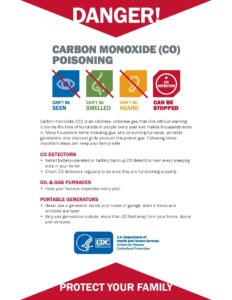 Carbon Monoxide
Carbon Monoxide
Combustion heating and cooling appliances such as heating, ventilation, and air conditioning units, gasoline-powered heaters, and other appliances are sources of carbon monoxide. Properly install, use and maintain fuel-burning appliances. Install carbon monoxide detectors in living spaces.
Dust
Dust mites can trigger allergy and asthma attacks. Dust mites are everywhere especially on pillows, blankets, carpets, upholstered furniture and stuffed toys. Dust and vacuum your home regularly, wash bedding, and use allergen-proof mattress and pillow covers.
Pet Dander and Hair
Pets can trigger allergy and asthma attacks due to dander and hair. Keep them out of the sleeping areas, and away from upholstered furniture, carpets, and stuffed toys. Vacuum and clean carpets, rugs and furniture often.
Secondhand Smoke
Secondhand smoke from cigarettes, cigars and other tobacco products can trigger asthma and other respiratory illnesses especially in children. To help protect children from secondhand smoke, do not smoke or allow others to smoke inside your home or car.
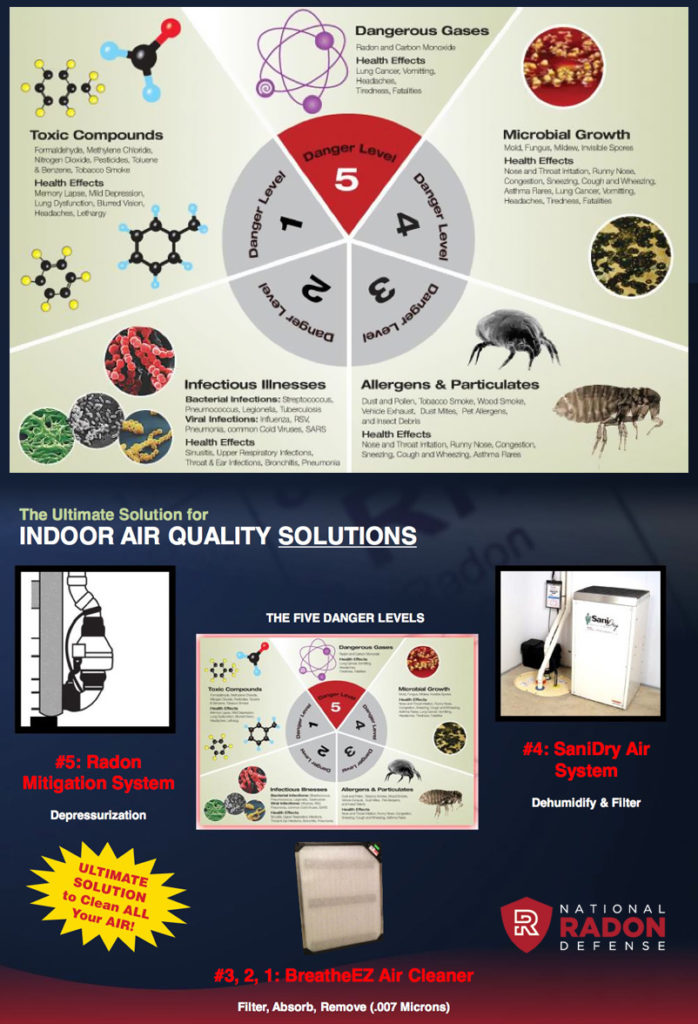 Radon
Radon
Radon is the leading cause of lung cancer among non-smokers in the U.S. It is a naturally occurring radioactive gas that can enter a home through cracks and openings in floors and walls that are in contact with the ground. Testing your home is simple and inexpensive. Learn more about Radon.
- For Existing Homes: Test for radon — testing is the only way to know if radon is in your home. Do-it-yourself test kits are convenient and accessible, or you may choose to have a professional test your home. If the test result indicates your radon level is too high, a qualified radon service professional can install a radon mitigation system.
- For New Construction: Radon-resistant new construction (RRNC) draws radon from the soil and vents it through a pipe to the roof, preventing its entry into the house. This technique uses common materials and building skills. RRNC costs less than retrofitting a similar radon reduction system after the house is finished. New home buyers should ask their build to include RRNC features. All new homes, even new RRNC ones, should be tested for radon.
- Learn more about radon-resistant new construction.
- Learn about the Indoor airPLUS program and the Construction Specifications, which includes radon.
Volatile Organic Compounds (VOCs)
Paints, resins, paint thinners and chemicals, and other products, will still release Volatile Organic Compounds (VOCs) even while stored properly. Make sure there is plenty of ventilation when painting, remodeling, or using other products that may release VOCs. Consider purchasing low and no VOC products. Learn more about VOCsQuick Links
We Accept
Copyright © 2024 Metro Heating & Cooling (CIWEB Group Demo Website) All Rights Reserved.





